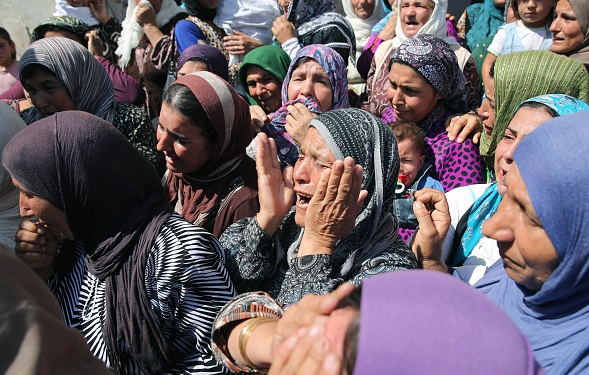Canada News
Canada asked to double aid for Syrian crisis at upcoming donor conference
OTTAWA – Canada is being asked to double its financial assistance to help ease the humanitarian crisis brought on by the nearly five-year old Syrian civil war.
The request from the British, German and Norwegian governments comes ahead of a major donors conference the three are hosting in London on Thursday. It is on the table as the Liberal government considers what role Canada will play in the fight against the Islamic State of Iraq and the Levant, now part of the Syrian war as well.
Humanitarian and development support will be key to this plan and International Development Minister Marie-Claude Bibeau will be on hand in London to stress that point, following visits to Lebanon and Jordan this week to assess existing efforts.
Asked whether Bibeau will take a cheque to the meeting, a spokesperson for the Global Affairs Department said Canada is still determining how available funding can be invested and what an appropriate contribution looks like.
“Minister Bibeau is exploring ways that we can reposition our support to address the serious needs of the region in a more strategic and effective manner, including long-term, bilateral development assistance,” Michelle Saucier said in an email.
The clock is also ticking on the matching fund announced by the previous Conservative government and extended by the Liberals Canadians have until the end of this month to donate to organizations active in overseas relief efforts and see their money matched by Ottawa.
Since January 2012, the federal government has pledged $653.5 million in humanitarian assistance and over $233 million to support longer-term development projects in response to the Syria crisis.
Bibeau has said she’s consulting aid groups to help shape the next phase of Canada’s efforts, but many are mindful of the risk of being too close to the plan.
Aid can’t be seen to be politicized, said David Morley, the president and CEO of UNICEF Canada, which has had no formal talks with the government on the subject.
“If it perceived as politicized, you can be putting the beneficiaries at risk and that’s the last thing we want to do,” he said.
“I don’t think we should be there at those political discussions. We can be there at the discussions about how do we reach the hardest to reach, how do we reach the children who need it the most.”
Accusations the Canadian government politicized aid haunted the mission in Afghanistan, where some $2.2 billion was spent on programs linked to military and diplomatic goals, but which an evaluation later concluded produced mixed and, in some cases, entirely unsustainable, results.
Defence Minister Harjit Sajjan has said the lessons of the Afghan mission are top of mind, including ensuring development dollars don’t create corruption that, in turn, fuels more violence.
Morley said long-term funding for education is part of stopping the cycle of violence. He’s met teenagers in refugee camps whose parents are frantic because, when their boys having nothing to do, they fall in with armed groups.
“It’s keeping them busy,” he said. “Not doing mindless things, but giving them a sense of working towards the future.”
Kevin Dunbar, CARE Canada’s emergency director, says the problem is that chronic underfunding of humanitarian needs takes away the ability to move into longer-term development work in Syria, as does the ongoing violence in the region.
That’s why work in the surrounding countries is as important, he said. It will help give Syrians the skills to one day use if they can return home. The people at the heart of the conflict need to drive whatever comes next, he said.
“We are pushing for a focus that puts protection of civilians at the centre,” he said. “And finding that political will to end the violence against them.”






















